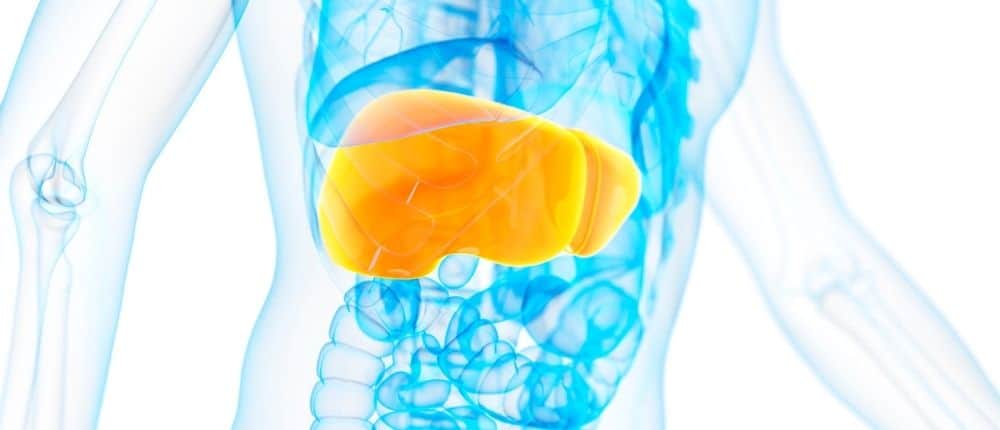
This website uses cookies to improve your experience. We'll assume you're ok with this, but you can opt-out if you wish. Read More
The Next Round: What happens after you change your drinking?

As people who want to cut down on their alcohol consumption, Club Soda members are always asking about their liver health. How do you know if you have damaged it? Is it possible to repair the damage, and how can you find out? What is the difference between a liver function test and a liver scan?
We’ve teamed up with Thriva, a business that makes it easy, convenient and fast for you to access your health data and understand more about what’s going on inside your body. In the article that follows, Thriva will share with us their knowledge about liver tests.
The liver is an important organ, as it works for the rest of the body in so many different ways. This includes storing fuel, processing fats and proteins from food, making essential proteins, as well as processing many medicines. Most importantly, it helps remove poisons and toxins from your body. And alcohol is of course one of those toxins. So how do you know if your liver is working normally?
A liver scan is an imaging test to look at your liver health, and see how well it is working. It is carried out in a hospital’s X-Ray department, using ultrasound technology. The scan will reveal the general size and shape of your liver, as well as any significant changes from its normal appearance. It would also highlight any long-term damage from alcohol consumption, such as scarring.
A liver function blood test can analyse your liver function, by looking at enzymes and how they process proteins. An injured or inflamed liver could be caused by anything from hepatitis to liver disease, to excessive alcohol consumption. The pattern of blood results helps determine what is causing the problems.
A liver function blood test is a good way of checking for any immediate problems, like a fatty liver. However, it wouldn’t be able to inform you of any long-term damage.
A fatty liver can be diagnosed in several ways. For example, seeing lots of certain types of enzymes in a blood test could mean you are developing fatty liver disease. However, as the disease also causes an enlargement of the liver, the best method of diagnosis is to take an image using a liver scan.
However, it’s important to remember that none of these tests can tell you everything about your liver on their own. To make the results more reliable, it is a good idea to test other things as well, like cholesterol levels and kidney function. For example, liver problems could increase your levels of cholesterol, and vice versa, and both of these together increases the incidence of heart disease. “Fatty liver disease” is one of the most common liver issues in the UK, and is often associated with excessive alcohol consumption.
Fatty liver is pretty much exactly what it says on the tin: too much build up of fat in the liver. The fat ends up being stored in liver cells, where it accumulates to form fatty liver disease. The most common cause of fatty liver is alcoholism and heavy drinking. These causes are so common that, in many cases, doctors don’t know what causes fatty liver in people who don’t drink excessively.
Other causes of fatty liver might include:
A high-fat diet will not directly result in fatty liver, but beware, as it could lead to other causes like obesity and diabetes.
The good news is that the only treatment for fatty liver is to adopt a healthier lifestyle. Normally, doctors recommend changes such as:
If you do a blood test with Thriva you can do it at home. They offer simple, affordable home blood test kits that unlock insightful and motivational information on your health. Your results will also be accompanied by a bespoke report from a GP on how to improve your health, inluding you liver health, and you can track the important information over time.
This website uses cookies to improve your experience. We'll assume you're ok with this, but you can opt-out if you wish. Read More
| Name | Domain | Purpose | Expiry | Type |
|---|---|---|---|---|
| wpl_user_preference | joinclubsoda.com | WP GDPR Cookie Consent Preferences. | 1 year | HTTP |
| PHPSESSID | www.tickettailor.com | PHP generic session cookie. | 55 years | HTTP |
| AWSALB | www.tickettailor.com | Amazon Web Services Load Balancer cookie. | 7 days | HTTP |
| YSC | youtube.com | YouTube session cookie. | 55 years | HTTP |
| Name | Domain | Purpose | Expiry | Type |
|---|---|---|---|---|
| VISITOR_INFO1_LIVE | youtube.com | YouTube cookie. | 6 months | HTTP |
| Name | Domain | Purpose | Expiry | Type |
|---|---|---|---|---|
| _ga | joinclubsoda.com | Google Universal Analytics long-time unique user tracking identifier. | 2 years | HTTP |
| sbjs_migrations | joinclubsoda.com | Sourcebuster tracking cookie | 55 years | HTTP |
| sbjs_current_add | joinclubsoda.com | Sourcebuster tracking cookie | 55 years | HTTP |
| sbjs_first_add | joinclubsoda.com | Sourcebuster tracking cookie | 55 years | HTTP |
| sbjs_current | joinclubsoda.com | Sourcebuster tracking cookie | 55 years | HTTP |
| sbjs_first | joinclubsoda.com | Sourcebuster tracking cookie | 55 years | HTTP |
| sbjs_udata | joinclubsoda.com | Sourcebuster tracking cookie | 55 years | HTTP |
| sbjs_session | joinclubsoda.com | SourceBuster Tracking session | Session | HTTP |
| Name | Domain | Purpose | Expiry | Type |
|---|---|---|---|---|
| mailchimp_landing_site | joinclubsoda.com | Mailchimp functional cookie | 28 days | HTTP |
| __cf_bm | tickettailor.com | Generic CloudFlare functional cookie. | Session | HTTP |
| NID | google.com | Google unique id for preferences. | 6 months | HTTP |
| Name | Domain | Purpose | Expiry | Type |
|---|---|---|---|---|
| _ga_10XZMT03ZM | joinclubsoda.com | --- | 2 years | --- |
| AWSALBCORS | www.tickettailor.com | --- | 7 days | --- |
| cf_clearance | tickettailor.com | --- | 1 year | --- |
| VISITOR_PRIVACY_METADATA | youtube.com | --- | 6 months | --- |
Join Club Soda for 10% off your first order of drinks for UK delivery. Plus get our latest news and special offers for members to choose better drinks, change your drinking and connect with others.
If you get an error message with this form, you can also sign up at eepurl.com/dl5hPn